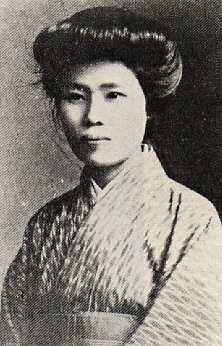Kanno Sugako and her anarcha-feminist life
I’m just popping into your inbox today to tell you about KANNO SUGAKO.

Kanno Sugako was a “Japanese anarcha-feminist journalist.” Yes! She lived from 1881-1911! An anarcha-feminist turn-of-the-century journalist!
“But Alice,” you say, “she was only thirty when she died? Did she die tragically? And is it because of The State?” YES on all counts. Kanno (quick note that in Japan, last names go first and I am not here doing the unfortunate thing people do when they use historical women’s first names instead of according them last name respect IT IS A THING) wrote about gender oppression and equal rights for both men and women.
She was killed at the hands of the Japanese government due to her part in an imperial assassination attempt. She believed that the emperor was the head of a state that economically oppressed its people, and that as a symbol, he must be destroyed (this newsletter does not necessarily endorse the actions of the women it reports on).
One of the really interesting things about her life was her changed thinking about sex workers. What is truly impressive is her coming to that shift by 30, and in her era. Now, that being said, she still thought sex work should be illegal, but she stopped looking down on women and started blaming the system, which was surely exploiting a good percentage of those women and not offering them income alternatives.
A translated quote of hers says:
When I was imprisoned in June 1908 in connection with the Red Flag incident I was outraged at the brutal behavior of the police. I concluded that a peaceful propagation of our principles could not be conducted under these circumstances. (full quote with citation here)
Apparently, when the judge asked her if she had a final statement, she said her only regret was that the plot failed. DANG.
If you’re interested in reading more about Kanno and other women like her, check out the book Reflections On the Way to the Gallows: Rebel Women in Prewar Japan by Mikiso Hane (quote about Hane: “No scholar has done more than Mikiso Hane to enable Westerners to understand what Japan’s modern history has really meant to the Japanese people”).